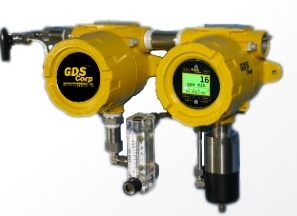In a business that constantly uses and exposes employees to gases, there is a particular potential for a gas leak. The gases that most of these types of companies use are toxic, hazardous, and can even be fatal. To prevent this from occurring, many companies are required by law to have gas detection sensors installed in their buildings. However, even those who are not required to do so should consider the benefits of installing an electrochemical gas sensor.
How it Works
An electrochemical gas sensor detects gas by oxidizing the gas at an electrode and then measuring the current. The gas is first diffused into the sensor through a porous membrane; when it reaches the electrode, it is oxidized to create an electric current. The external circuit measures, amplifies, and analyzes the current to measure the resulting amount of gas. If it is above the set desired amount, the sensor goes off to signal a gas leak.
How This Benefits You
Electrochemical gas sensors are one of the most popular types of leak detection used for toxic gases. While they should not be used to detect combustible gases, toxic gases like carbon monoxide and hydrogen sulfide can be measured extremely accurately with this type of sensor. There are several reasons they tend to be the most-trusted sensors, including their ability to target specific gases, low power requirements, and resistance to poisonous gases.
Being able to target one type of gas is a huge benefit to many factories. Because most factories specialize in one type of gas, they can put the entire focus on the particular leak of that gas in the parts-per-million range. This provides an extremely accurate reading and high sensitivity to even the smallest leak. Higher-quality electrochemical gas sensors yield the most accurate results and therefore have a higher degree of selectivity.
The entire sensor has very low requirements for energy usage, so the company doesn’t have to worry about the added expense of monthly power bills. Of course, there will be an increase in power usage, but electrochemical gas sensors use very little power as compared to many other types of detection systems. They are also much less expensive to purchase as a unit.
Because the sensor is in constant exposure to potentially poisonous gases, it is a comfort to know that the unit will not be affected by it. What use does a unit have that cannot withstand exposure to the very gas it is meant to detect? Electrochemical gas sensors will live on to detect another day; replacement for this type of sensor is therefore required much less often.
The overall benefits of an electrochemical gas sensor are numerous. These few are the reasons the unit is so popular among factories, but there are additional advantages to be discovered as well. Safety should always be a top concern; installing an electrochemical gas sensor is imperative to a safe workplace.

